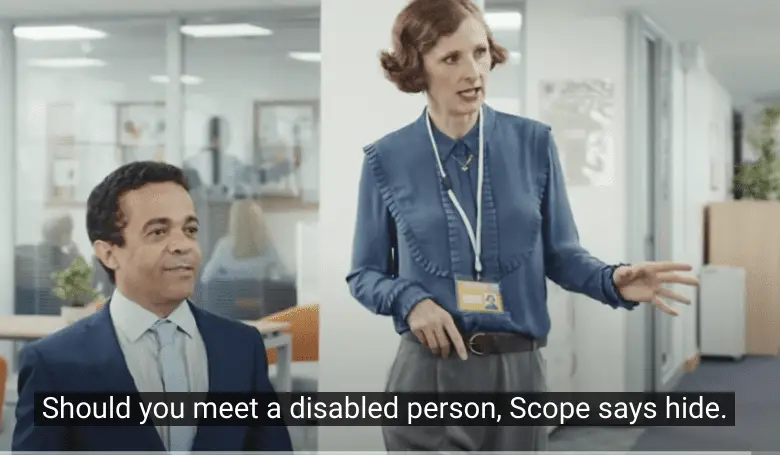
Is the Awkward Ending?
This is an updated post from our archives. The article discusses Scope’s “End the Awkward” campaign, highlighting research that reveals a significant portion of disabled individuals feel compelled to hide their disabilities due to societal stigma. It also examines the discomfort many people experience when interacting with disabled individuals and offers strategies to foster more comfortable and inclusive interactions.
Recent Developments in Disability Awareness Campaigns
Since the launch of Scope’s “End the Awkward” campaign, there have been notable advancements in promoting disability awareness and inclusion:
- Increased Media Representation: More disabled individuals are being featured in television, film, and advertising, helping to normalize disability in mainstream media.
- Educational Initiatives: Schools and universities have implemented programs to educate students about disability rights and etiquette, fostering a more inclusive generation.
- Corporate Inclusion Programs: Businesses are adopting diversity and inclusion policies that specifically address disability, ensuring better workplace accommodations and opportunities.
For more information on current disability awareness initiatives, visit Scope’s official website.
New research by Opinium on behalf of Scope found two in five (38%) disabled people feel the need to disguise their disability as a result of stigma and negativity.
This rises in young disabled people. A staggering two thirds (66%) of 18- 34 year olds are more likely to conceal their impairment.
The majority of disabled people (62%) feel they are treated differently because of their impairment and this increases to a shocking 76% of disabled people aged between 18 and 24.
These new findings are released to mark the third year of Scope’s End the Awkward campaign, which aims to challenge attitudes to disability and highlights that the majority of the British public still feel awkward around disabled people.
And it’s not just disabled people the charity has been polling. Scope polled over 2000 members of the general public to find out how awkward our nation really is.
The anonymous survey led to some very revealing stories:
- One person said they avoided serving a regular disabled customer because they couldn’t understand them.
- Another person felt awkward when they asked a deaf colleague to answer the phone.
This is backed up by new research revealing people are so awkward around disabled people they actively avoid them:
- Over a third (34%) of Brits said they avoid disabled people over fears of being patronising or saying the wrong thing in their company.
- Only a quarter (23%) of us felt comfortable enough around disabled people to stop worrying about using potentially inappropriate language, or accidently being offensive.
With so many people going out of their way to avoid interacting with disabled people, Scope is using humour to shine a light on how uncomfortable the nation can be, and launched a thought-provoking TV advert during the Paralympics.
The tongue in cheek prime-time advert on Channel 4 will features the much-loved voice of actor Simon Callow and offers advice on how to End the Awkward in the form of a mnemonic – H.I.D.E
H…Say ‘Hi’
Introduce yourself
Don’t panic
End the Awkward
Mark Atkinson chief executive at disability charity Scope, said: “End the Awkward is about shining a light on the awkwardness many people feel around disability in a refreshing, open and honest way.
“Despite the popularity of the Paralympic Games, we know from our research that majority of people feel uncomfortable talking about disability, and feel uneasy around disabled people as a result.
“Our new findings show the damaging impact this has on disabled people.
“We know almost half the British public don’t know a disabled person. Many also said getting to know a disabled person would help eliminate unease.
“By approaching this serious issue in a light-hearted way we hope people will feel they can share the campaign with friends and address a topic they may normally try and avoid.”
By Scope
@scope
Thought from the Editor: Some of those figures are really fascinating, particularly “Over a third (34%) of Brits said they avoid disabled people.” Although that might sound awful, and it is, it also shows that events like the Paralympics, campaigns like End the Awkward, and all sort of other endeavours are working. In 2011, BT conducted a similar piece of research and found that “65% of people have admitted that they avoid disabled people.” That means that though there is still so much awks, we’ve halved it in just 5 years, and that’s awesome.
Tips for Respectful Interactions with Disabled People
- Always speak directly to the person, not their companion or interpreter.
- Offer assistance, but wait for acceptance before acting.
- Avoid making assumptions about a person’s abilities or needs.
- In USA use person-first language, such as “person with a disability,” in UK because of widespread agreement with the Social Model of Disability, identity-first language is preferred, such as, “disabled people.